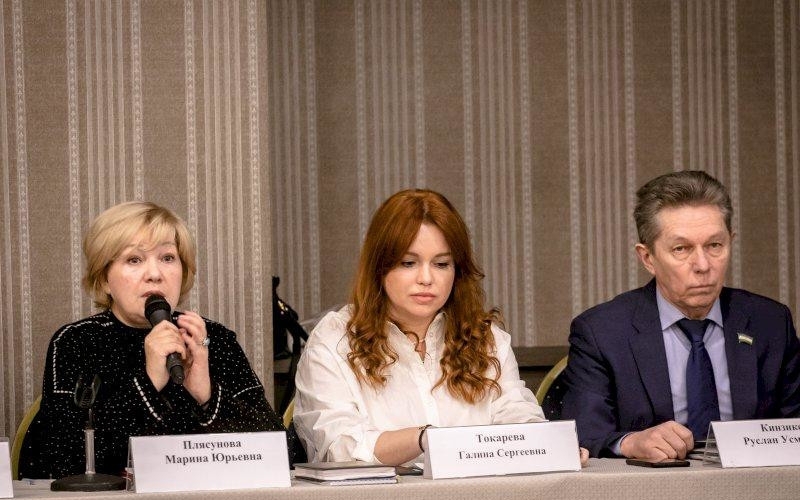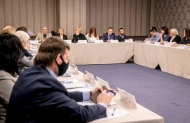
On November 29, the Eurasian Peoples' Assembly, together with the Administration of the city of Yekaterinburg (Russia) and the Russian-German cultural and business center, organized a Round Table “Megacities shape the World. Urban Models of Intercultural Integration."
The event was attended by the Representations of the Eurasian Peoples' Assembly.
“The diversity of national cultures is more difficult to preserve in large cities, where many folk traditions are transformed and new values emerge. At the same time, these processes give rise to creative potential, but we can realize it only on the basis of mutual respect and constructive dialogue. The Eurasian Peoples' Assembly can become a powerful integrator here, directing its activities towards the creation and open interaction of national cultures,” - says the welcoming speech of the Head of the Representative Office in the Republic of Bashkortostan (Russia), Prime Minister of the Government of Bashkortostan Andrey Nazarov.
First Deputy Secretary General of the Eurasian Peoples 'Assembly - Head of the General Secretariat Svetlana Smirnova said in her welcoming speech that the initiative of the Eurasian Peoples' Assembly to organize intercultural dialogue in anticipation of summing up the results of the UNESCO International Decade for the Rapprochement of Cultures is especially relevant. The initiatives proposed by the participants of the Round Table will be included in the program of events dedicated to the World Day for Cultural Diversity for Dialogue and Development, which is celebrated annually on May 21.
In an open dialogue, the participants discussed the management of ethno-cultural diversity, which has always been a challenge for a city of any level. For megalopolises, where especially large flows of migrants are concentrated and where an ethnically diverse population lives, this issue is especially acute. Social upheavals, lockdowns, crises of any level and interstate conflicts bring the possibility of interethnic and interreligious strife. How to build a governance system in the city so that diversity is no longer a stumbling block, but turns into a springboard for moving forward? Are we overestimating the importance of diversity for the social, cultural and economic development of the city to increase its attractiveness? Is cultural diversity a “headache” for the urban management community and its residents?
The decision to hold such a discussion in Yekaterinburg is not accidental. The city, located at the crossroads of Europe and Asia, uniting more than 160 ethnic groups representing about 90 countries of Eurasia, has a wealth of experience in the field of cultural diversity. The participants in their speeches confirmed that cultural diversity is a most valuable asset, which is an indispensable condition for achieving the sustainable development goals proclaimed by the United Nations.
Summing up, the participants decided to initiate the organization of an international teleconference with the mayors of Eurasian cities with the same name: “Megacities shape the world. Urban Models of Intercultural Integration." It is in such a dialogue that it will be possible to take stock of various initiatives aimed at strengthening intercultural and interreligious understanding, agree on a roadmap of human-centered measures and actions in order to more effectively implement their various obligations, taking into account national and local realities. The teleconference will outline the path to global cooperation and meaningful partnership.



